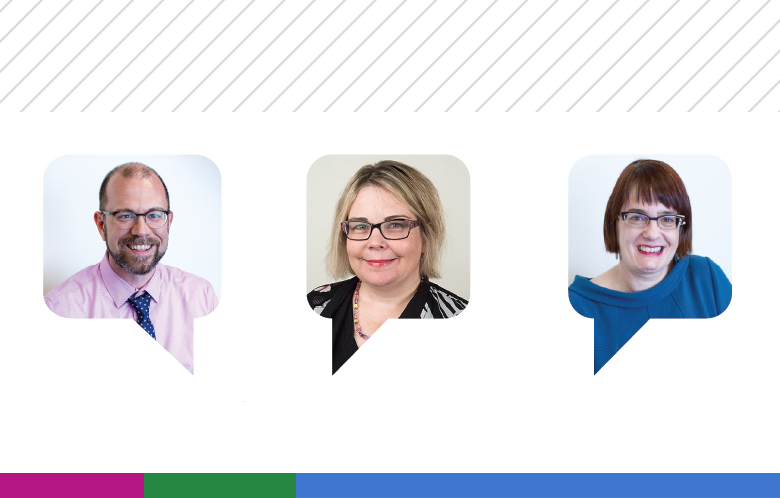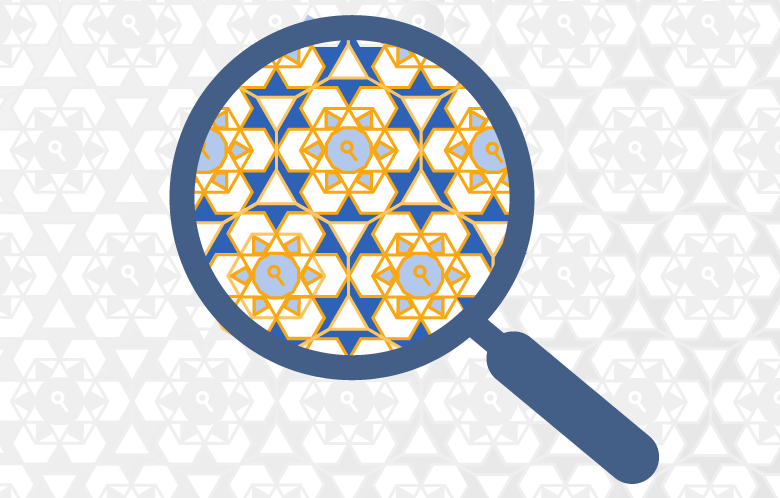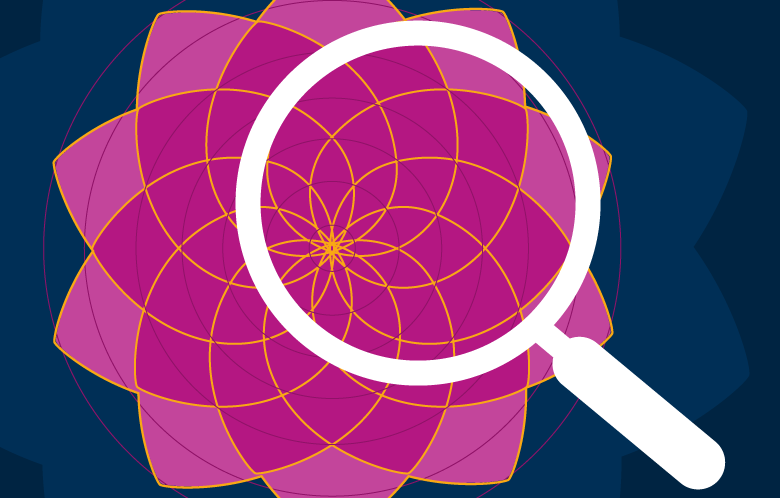What truly makes Atla unique is our products, from databases to collections to alumni tools. In celebration of Atla’s 75th anniversary, we spoke with Margot Lyon, Director of Business Development, Gregg Taylor, Licensing Manager, and Lavonne Cohen, Senior Business Development Analyst, to learn about Atla’s products and our relationship with EBSCO.
AC: I’d love to hear what brought you each to Atla.
GT: Well, I got here first, so I’ll start. I was doing my PhD at the Divinity School at the University of Chicago. I bumped into a classmate of mine, who was working at Atla, and they said, “Hey, Gregg, we’re hiring; we’re looking for somebody with a theology background,” which is what I studied. I didn’t know a lot about Atla, but I was able to secure an interview. Cameron Campbell was the person who interviewed me – he was the Director of Indexes, which is what Maria’s position, the Director of Production, used to be called. I had a great interview with him and the editorial staff, and I started in July of 2002 and later moved to become Licensing Manager in 2011.
AC: Do you remember your first impressions of Atla?
GT: I do. I remember the executive director at the time, Dennis Norlin, met with me individually, just to let me know his vision for Atla. My impression was that he wanted to share his enthusiasm for the association with me. That really made a meaningful impression. I found some things I expected to find, like a lot of very learned people, a lot of scholars, a really neat community that I would be stepping into and working with – that was less of a surprise. But it felt like it was in very good hands. And that made me feel like it would be a happy home for me, and I was right. It has been.
ML: I joined Atla next, in 2004. I had worked in the corporate world for a long time; I worked for SONY and on Wall Street and various other startups. I took a sabbatical and went to the University of Michigan’s School of Information, where I got a Master of Science in Information Economics, Management, and Policy. I was in Michigan after that, working remotely for a market research firm, but my partner is from Chicago, and I’m from the Midwest. We always thought we’d want to come back here, so I entered a blind headhunting ad. It said something like, “Prestigious scholarly nonprofit in the Chicago area seeks someone with a humanities background who’s an expert in content licensing, sales, and business development in the library landscape.”
They’d never had a Director of Business Development before. It was always under Financial Services, but the markets were expanding, and what they really wanted was someone who could manage the business side of the operation. That’s where it started, and then I hired Lavonne.
LC: I came on board in January of 2005. My prior background was in finance and management consulting. My bosses would always say to me, “You should really be a librarian. You have excellent research skills; you should really be a librarian.” So, I thought, “Hmm. Maybe I should.”
I think some of the same things that drew both Margot and Gregg to Atla were what drew me as well. Just that really cool balance of being around a bunch of really smart people who are also just exceptionally kind and generous with their time. And that’s why I’ve stayed. I just really enjoy the people, both staff as well as members. And then there’s this whole other world of subscribers who, while they’re not members, are still extremely important, and they give us a lot of great feedback and support for our products.
It’s always been really rewarding, every November during the annual meeting of AAR and SBL (the Annual Meetings of American Academy of Religion and Society for Biblical Literature), to get one-on-one feedback from our subscribers and members about our products and just how indispensable they are. People will say, “Wow, I couldn’t have finished my degree without it!” Especially during the pandemic, people have really appreciated having such a comprehensive research tool suite at their fingertips to do their work remotely. So that’s a little bit about what drew me to Atla and why I’m still here!
AC: When you three joined, we had the print catalog, CDs, and RIO, which was –?
>ML: Religion Index One. We had Religion Index One, Religion Index Two, and something called IBRR: Index to Book Reviews in Religion.
GT: Religion Index One, which was the first, were articles in scholarly journals. Religion Index Two was the essay literature, which we still index as a part of the religion database, but there’s not a full-text component to it. And then, as Margot mentioned, Index to Book Reviews in Religion, or IBRR, was the third long-running print product. That was the print legacy.
It still existed when the three of us started, but the transformation was on its way. CD-ROMs had come out in the 90s and there were a couple of efforts to make subsets of the product, just because it was starting to run into data limitations, right? I mean, the advantage was, you could have more than one year, as opposed to having to search from volume by volume, but a CD-ROM could only hold so much.
I think there was a real experimental phase in the late 90s, early 00s, as we kind of made what we now see as the transition from print to electronic. Those three print products merged into what is now known as the Atla Religion Database® (RDB®), and then, right around the turn of the millennium, the full-text products started. AtlaSerials® (Atlas®), which was in part funded by a grant from the Lilly Endowment Inc., drew from the journals included in the Atla Religion Database.
When Atlas started, there was a desire to be cautious, so we started with fifty titles that were selected by a group of outside scholars in various sub-disciplines of religion and theology. Since then, we’ve had radical growth in the product, going from fifty titles to now close to six hundred titles. There’s been an attempt to get global scholarship, written by global scholars – not by scholars in the US writing about the globe, but global scholars.
ML: In licensing, the world became more complex, especially as we ventured outside the United States. When we first went online, we had five aggregators: SilverPlatter, Ovid, OCLC iFirst Search, CSA, and EBSCO. Due to market dynamics, some organic changes, and some mergers and acquisitions, EBSCO’s our only aggregator partner now. We also have an agreement with Boston College to co-produce New Testament Abstracts and an agreement with the Catholic Biblical Association to co-produce Old Testament Abstracts online. Plus, we digitized 30,000 books going back to the thirteenth century with EBSCO in the Atla Historical Digital Archives. So, lots of change.
GT: One thing that strikes me is that when I arrived in 2002, print was still considered the dominant vehicle. The electronic aspect was a subset, a tweak of that, as were the CD-ROMs. But within a year of Margot and Lavonne getting here, it was clear that the electronic piece was going to be driving our development in very important ways.
ML: We did have our own Atlas platform for a while when things first started. But honestly, our core competency is in content production, licensing the content, and applying the great metadata – our indexers have capabilities in more than forty different languages. The expectation of a 24/7 platform was just not a direction that we wanted to invest in, nor was it what our customers ultimately at the time, so that’s why we exited hosting our own database. EBSCO’s been a valued partner for us. They contribute $20,000 a year to our scholarship and grant funds, and they always generously support our mission. We’re celebrating twenty years of a relationship with EBSCO along with our 75th.
We’re celebrating twenty years of a relationship with EBSCO along with our 75th.
We’re celebrating twenty years of a relationship with EBSCO along with our 75th.
GT: One of my favorite things about religion publishing is that there are a disproportionately large number of small publishers. There are a number of institutions that have a unique religious viewpoint and may only publish one specific journal. That’s different from, say, mathematics or chemistry.
However, that said, I’ve seen a lot of these folks who publish journals out of a conviction find out that publishing is maybe not as easy as it seems. You have folks who are content experts, who can be great at the editorial piece and know how to write and identify excellent content, but getting that to the readers is a challenging process. And I have seen folks who figured out how to put together a journal in print, but once the transition really went to electronic publishing, a lot of them found that it was simply too much. They couldn’t get a journal out in a way where they felt satisfied with the results.
I think one of the strengths of our products is that we value the big-name commercial publications, and we also recognize the incredible value in these smaller religion publications. I love that we include all of that. Our licensing team has a great mandate where we’re able to be very flexible and nimble to pursue content as it bounces around from publisher to publisher. But we try to maintain strong relationships with all the major players in the field so that our products don’t lose content when content may change publishers.
I think one of the strengths of our products is that we value the big-name commercial publications, and we also recognize the incredible value in these smaller religion publications
I think one of the strengths of our products is that we value the big-name commercial publications, and we also recognize the incredible value in these smaller religion publications
ML: Moving from the English-only journals to global really took a stretch for staff, and we’re very strategic about being welcoming. We have our “We’re Atla” video and the tutorials, we have sell sheets available in many different languages, so things like that are really pivotal. It also includes subject experts on staff like Su Hyeon Kang being a liaison for our Korean content, and Iskandar Bcheiry as well.
Going to the Frankfurt Book Fair and those kinds of global conferences really helped solidify our brand and our intention. As Gregg said, we have content about Africa from Africa, content about Asia from Asia. Speaking to the mega issue and our commitment to overall diversity, equity, and inclusion, I am proud to be involved in the global outreach.
As Gregg said, we have content about Africa from Africa, content about Asia from Asia. Speaking to the mega issue and our commitment to overall diversity, equity, and inclusion, I am proud to be involved in the global outreach.
As Gregg said, we have content about Africa from Africa, content about Asia from Asia. Speaking to the mega issue and our commitment to overall diversity, equity, and inclusion, I am proud to be involved in the global outreach.
GT: And one of the things we’ve done is realize that to walk that walk, we have to go to folks who maybe don’t know us and explain what we’re about. Because of our historic strengths in North American Protestantism, there’s probably not a North American or UK journal in that field that doesn’t want to be affiliated with Atla. They know who we are, and they know what we do and content development in that area, because of the very hard work of the people who make it, is very easy, because people know what we offer.
Fifteen years ago, that was much less true globally. It really required some intentionality about building new relationships. I remember going with Iskandar to Rome and we visited scholars, we visited religious leaders, in some cases in their homes. And the American Theological Library Association doesn’t sound like something that a Mediterranean Islamic journal wants any part of, right? But we do in our heart, and so we have to take the opportunity to talk about who we are and to talk about our mission. When we rebranded as Atla, that removed a stumbling block for these global conversations. Publishers we now approach in South Korea, in Spain – as a recent example, in the Ingria region of Russia – they can more easily identify our global scope and identify with our mission.
To be able to rely on someone like Su Hyeon in Korea or Iskandar, allows us to make that translation, to help people who have incredible content in religion, and to show that there’s a real place for them in the products.
There are more systematic ways of doing it that Margot’s talked about: for example, the Frankfurt Book Fair, which is the biggest conference of its type every October in Frankfurt, Germany. That is where we were able to build relationships with a lot of commercial European publishers who didn’t necessarily know who we were. There’s no replicating face-to-face conversations, which is part of what’s so challenging licensing-wise over the COVID times. Our strategy of meeting publishers and scholars where they are has been extremely successful for us in realizing our goal of treating the world’s religions in the world’s languages.
ML: Something I’ll celebrate too, and what I love about our space, is that content from hundreds of years ago can be just as relevant and interesting. Supported by the Lilly grant, we’ve licensed close to thirty historically significant ceased titles, including Christianity in Crisis, Sisters Today, and Shaker Quarterly. Those have been added as a way of continuing that academic legacy. Oh! And our African American Historical Serials Collection was awarded a 2012 Outstanding Academic Title by Choice Magazine!
LC: I’d also like to celebrate alumni access. We are giving that access point for people to use what they’ve learned in their day-to-day careers, or in their retirement, or just for personal reflection.
GT: I like to think there are many ways in which our sensitivity to the niche that we’re in positively affects the products that we produce, and those are two great parallel examples.
The long tail of the content is incredible in our field, and some things get more important over time. Some things change why they’re valuable. A journal like Christian Century, which we’ve been doing for over one hundred years, might have more recent issues that are interesting topically, but then you go back a few decades and it’s fascinating historically to understand what was going on in the American Protestant mainstream in the 1930s, 40s, and 50s.
I think we appreciate the value of content, and the importance of the alum accounts. Something that’s distinctive about seminaries and divinity schools is that they’re not producing academics who only go to academic institutions. They’re producing clergy who go to churches and no longer have direct access to an academic library. And yet, to do the work that they do, to prepare sermons, do pastoral counseling, those library tools remain very valuable, even though they’re not quote-unquote “in the academy.” And we’ve tried to mold how we offer our products in such a way that’s sensitive to that too.
AC: We’ve talked about a lot of changes over just the last twenty years, and even more over the last seventy-five years. What do you think it says about Atla, that our products have changed so much?
ML: I would say that we’re good listeners. We’re good listeners to everyone involved in the value chain, including our end users, the alumni, the students, the faculty, the librarians, business partners, and publishers. We’re also adaptable or agile. When I joined, we had CD-ROMs, print, five aggregators – it was like managing all the different plates in the air! But I think it also speaks to our mission. Lavonne and I come from the corporate world where creating shareholder value is the only goal. And one reason why I left the corporate world and continue to be at Atla is because of that mission, knowing each and every day that you’re making a difference in the world. That’s one of my core values. Knowing you’re going to wake up each day and make a difference in higher education and beyond is something that’s deeply meaningful to me, along with lifelong learning.
GT: On the products side, it’s interesting to me how much has stayed the same. We’re doing in really meaningful ways the same stuff we were doing in the 40s, I think in a good way. We’re not blowing in the wind. There’s a core need that we can meet about excellence and discoverability and identification of meaningful academic literature in religion. It has always been done in deep dialogue with our members, our customers, and our outside world. And as the world changes, the needs for format and delivery have changed.
AC: Absolutely. Resiliency, but flexibility.
LC: Yes! And the depth of knowledge of our subject experts, their ability to do such complex indexing, is incredible.
ML: And many of our staff, not just the subject experts, have encyclopedic and broad knowledge about other topics, not just religion. I always joke that if I were on “Who Wants to Be a Millionaire?” and I had a lifeline, I would just say, “Patch it through to the Atla main number!” Because someone could help me with music, someone could help me with food, someone could help me with literature… there’s this almost insatiable commitment to that meaning-making or that lifelong learning. I’m excited to see what the future holds, and I’m grateful for everyone involved from start to finish.
This piece was originally published on Atla’s blog.



